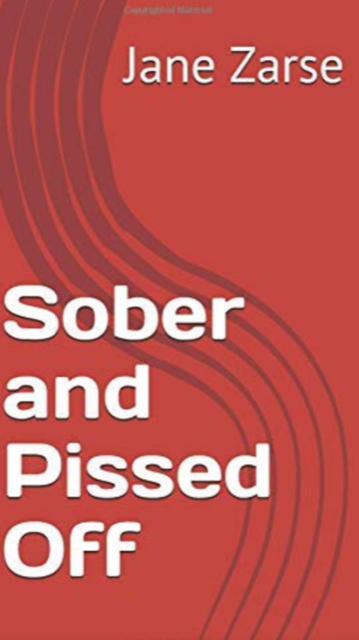Drinking or not, left to my own devices I am self-destructive. After years in recovery, I learned that my drinking problem was really just a thinking problem all along. I was depressed because I was hurt and angry. I was pissed and felt entitled to my rage. I was justifying my anger instead of taking responsibility for it. Most angry people feel their anger is justified; therefore, they won’t take responsibility for dealing with it. Righteous indignation is a reactive emotion of feeling wronged. Since I used to be a slave to the behavioral patterns of acute alcoholism, I was overly familiar with playing the victim and sitting around feeling sorry for myself. I did it for years.
After attending thousands of AA meetings, I know that acceptance is the answer to all of my problems. In order to be happy, I need to practice acceptance. I don’t have to like something or approve of it, but I need to accept it in order to move on. I was still in disbelief about what had happened in my relationship, and this kept me in denial. I didn’t want to believe things that would hurt my feelings. I kept asking questions, hoping that the answers would be different and I could chalk this up as one big misunderstanding. My thirst for different answers was desperate and pathetic, and it kept me stuck. I knew I needed to accept my situation as it was; anything else would be avoidance of reality. Acceptance was mandatory for me to move forward, yet I couldn’t embrace my reality. Why was I doing this to myself? What was I holding on to? Was I hurting myself on purpose?
I needed to practice acceptance and forgiveness, but I really didn’t want to. In my anger, forgiveness wasn’t even on my radar. Forgiveness is very hard for me; it doesn’t even feel like it’s part of my constitutional makeup. I was holding on tight to my resentment and didn’t want to let go. I couldn’t let go of my resentment because I was using it as a defense mechanism. My ego thought that as long as I stayed pissed and didn’t accept the offense as reality, I could avoid the hurt. My ego was trying to protect me by holding on to anger. Feeling angry can feel more powerful than feeling sad and vulnerable. My ego flourishes in the pain and relishes in the self-pity. Holding on to the resentment was fueling my ego, and I had no idea. I just stayed pissed and stuck.
Though I knew this anger was killing me, I didn’t know how to shake it. Harboring resentment made me powerless over the situation and my own feelings. I wanted to live a life that wasn’t dominated by unresolved anger, hate, and resentment. I wanted to take my power back, but I was up against a thousand forms of fear. Falling in love had made me feel vulnerable and insecure. Nothing awakens distant hurts like a close relationship. Intellectually, I know that I am solely responsible for my happiness. Blaming Adam for my unhappiness let me play the victim and avoid personal responsibility. Alcoholics are known to have an appalling lack of perspective. My focus is always on what happened to me. I rarely like to look at my part in a difficult situation. I didn’t yet consider that maybe my problem wasn’t who had wronged me, but what I was doing wrong
I wasn’t going to get any better as long as I kept playing the victim. I was not entirely innocent in the situation; I just refused to look at my part. I was the one who responded with hurt, anger, and blame, which made me stressed out and depressed. I was scared that if I let go of the resentment, I would wind up drowning in heartache and helplessness. I wanted to be in charge of my own emotional world. I wanted to take my power back and make healthy choices with my feelings and behaviors. However, I had no emotional control, and it was easier to blame someone else for my inability to cope. Blaming someone else for my rage was a complete cop-out and wiped out any chance for personal improvement. I had to give up blame if I ever wanted to be happy.
In active alcoholism, I’d lost the power of choice in drink. My body demanded it, and I continued to feed the beast. I had no willpower, and I even convinced myself that I needed to keep drinking in order to continue living. As an angry, dry drunk, I once again lost the power of choice—this time, over my emotions. Healing comes from taking responsibility. I needed to take an honest look at myself and decide if I wanted to continue blaming others and feeling sorry for myself. Blaming others is counterproductive, because it actually makes us feel worse. I had to admit that I’d given my power away and I am the only one who is 100% responsible for my feelings and actions.


